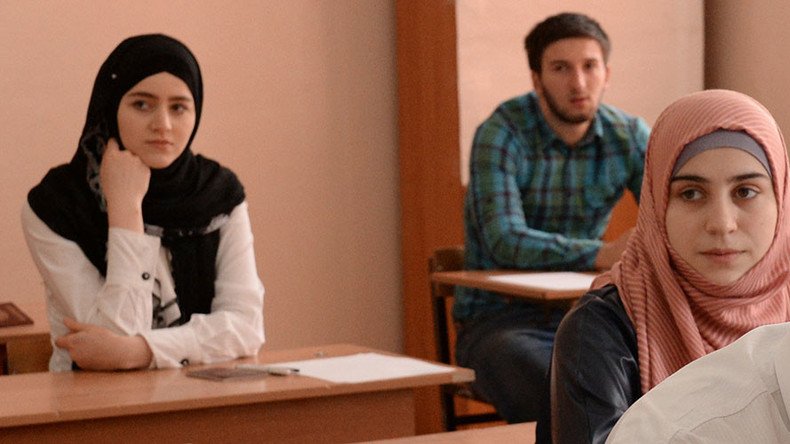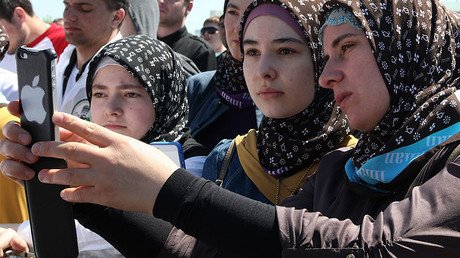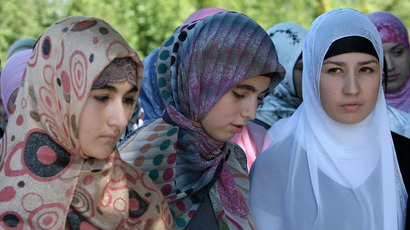Russian Orthodox Church urges change to Chechen ruling allowing hijab in schools

The head of the Moscow Patriarchate’s legal service has said a recent decision to allow Muslim headwear in Chechen schools should be reversed as it violates federal principles on the secular nature of state-run schools.
“Giving to schoolchildren such a right in the Chechen Republic is a violation of the secular principle of education in state-run schools and in this part the amendment must be corrected,” Hegumenia (Abbess) Ksenia (Cherniga) was quoted as saying by Interfax.
The comment came just days after the parliament of the Chechen Republic passed a bill ordering all educational establishments to consider it students’ right to wear clothes or symbols required by their religion or national traditions, provided this does not contradict federal laws and does not harm the children’s health.
The bill means that the female Muslim hijab headscarf will be permitted in local schools. The Chechen capital, Grozny, introduced school uniforms with obligatory red headscarves for girls about a year ago.
Hegumenia Ksenia noted that Russian Federal laws do not grant schoolchildren the right to wear religious attire and therefore no Russian region could introduce any laws introducing it.
“The Federal Law on Education establishes the secular character of education and therefore cannot give schoolchildren the right to choose uniforms that match their religious beliefs,” she said.
Last week, Vladimir Putin’s press secretary Dmitry Peskov told reporters that the Kremlin did not have a particular position on the issue, adding that the constitution described Russia as a secular state, but that it was necessary to understand if federal and regional authorities could introduce their own regulations concerning school uniforms.
The public argument around religious attire in schools in general and Muslim hijabs in particular dates back to 2015, when the Supreme Court ruled to uphold the ban on Muslim headwear in schools introduced by the authorities of the central Russian Republic of Mordovia.
The court rejected a complaint lodged by the Mordovian Muslim community, which claimed that the ban on religious headwear in schools violated the constitutional principle of freedom of conscience. The judge ruled that the ban on wearing headscarves in schools did not prevent Muslims from believing in God and did not infringe on constitutional rights.
The head of the Chechen Republic, Ramzan Kadyrov, disagreed with the court ruling, saying that the Russian constitution guaranteed freedom of conscience to every citizen, including schoolchildren. The chief mufti of the central Russian Republic of Tatarstan also spoke out against the ban.
In early February this year, the Presidential Council for Human Rights released a statement in which it urged the federal and regional authorities to develop a common approach to values and to jointly find an unambiguous solution to the problem.














